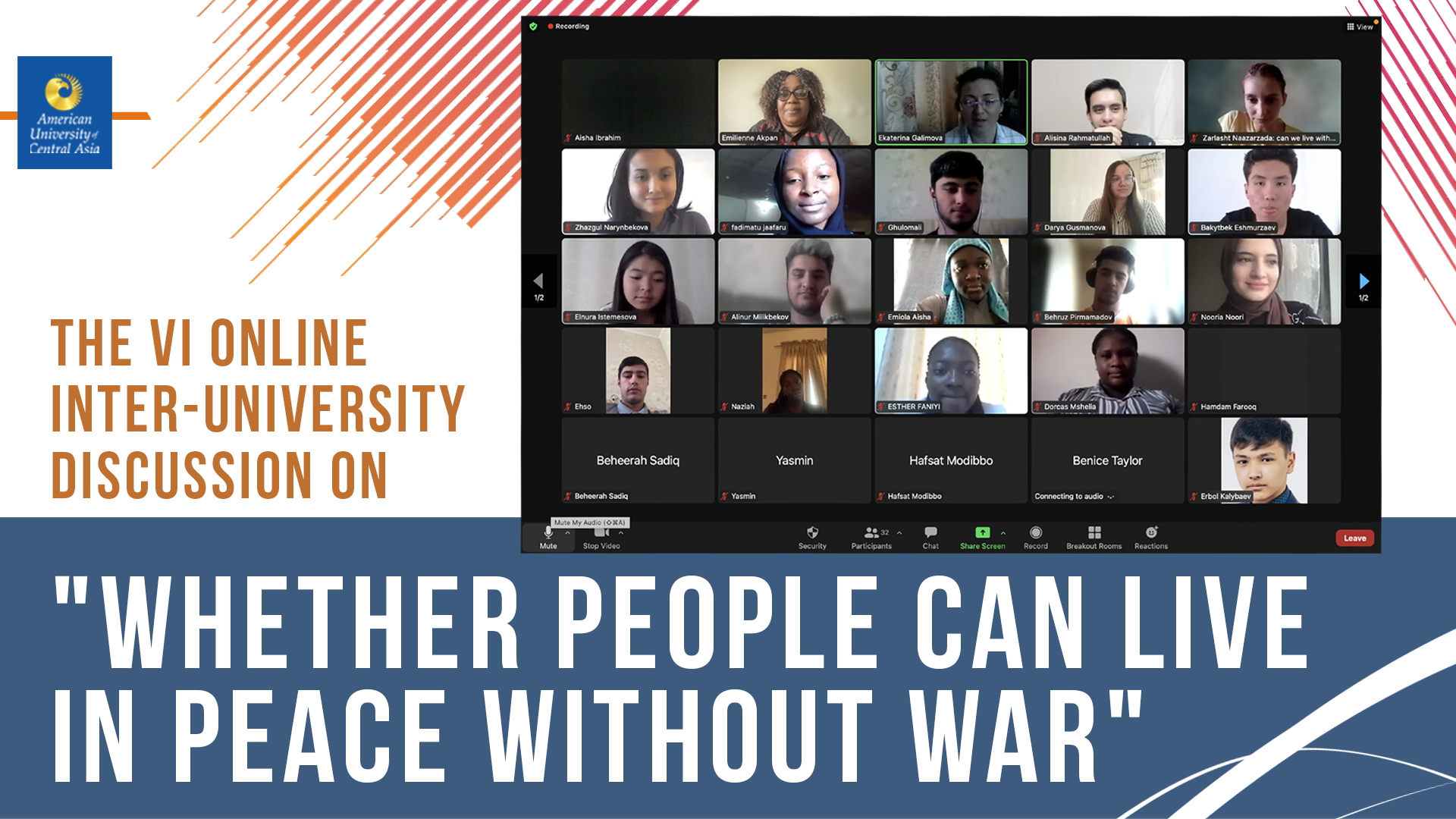April 28, 2022
On April 23, 2022, students from the American Universities of Nigeria (AUN) and Central Asia (AUCA) conducted The VI Online Inter-University discussion on Whether��People Can Live in Peace Without War.��The event was organized within the framework of the Civic Education project called��Crossing Borders Through Social Media and Dialogue by��Ekaterina Galimova from AUCA, and Emilienne Akpan from AUN.
It gathered 32 participants from both universities. Two hosts: Darya Gusmanova and Samaila Dikko, did their best to make the atmosphere friendly and comfortable. After presenting brief video introductions about both universities and Ground Rules, a hot discussion broke out between the AUN and AUCA students who led a discussion on what makes contemporary leaders attack other countries and what traits of character are necessary for a leader to conduct peaceful policy. For instance, students from Afghanistan Zarlasht Naazarzada, Nooria Noori, and Hamdam Farooq claimed that intelligence and education influence decision-making, while Aisha Ibrahim from Nigeria stated that no matter what education a leader might have, what matters in policymaking is the morality of a leader. Students of both universities provided strong arguments to support their ideas. Another deep discussion concerning communist leaders arose between Aisha Ibrahim, AUN, and Alinur Milikbekov, AUCA. Aisha claimed that most of the communist leaders were dictators and violated the Human Rights of their citizens. Whereas Alinur, in his turn, responded that it was necessary to revive the country and bring order. Both participants continued their talk in one of the Breakout Rooms.
There were several Breakout Rooms, such as��The Contribution Of Peace Organizations To The Nation,��The Importance Of Peace Forms, Peace Between Parents And Children, The Influence Of Traditions On The Perception Of Peace, Psychological War, Contribution Of Women To Peace.����pecial thanks to AUCA host Nilab Hadid who updated the introductory presentation, and active speakers such as Fadimatu Jaafaru, Dorcas Mshelia, Behruz Pirmamadov, and Ghulomail Qadamaliev.
This time, to encourage student preparedness and engagement, the professors decided to conduct a survey in the form of Entrance Passes one week prior to the discussion. The participants filled out a questionnaire that covered questions regarding their short-term goals and general preparedness for the event. After the event, students had to ‘get’ Exit Passes by answering the follow-up questions like whether the students achieved their goals, what they should have taken into account to achieve them next time, and what organizers could have done to help students to achieve their goals.��
It is worth mentioning that the gathered data will be used and published in the pedagogical article in the future by the organizers and participants of the online discussion.��